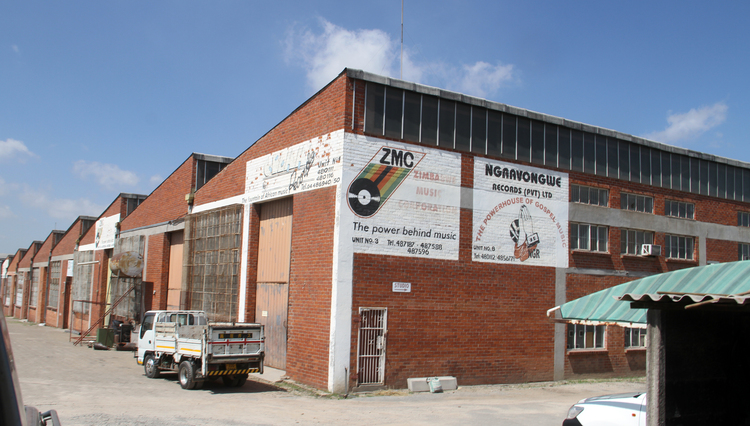
The Sunday Mail

The death of an empire is rarely a pretty sight.
And this holds true for local music behemoth Gramma Records, which is set to be sold in bits and pieces as potential buyers are reluctant to snatch up the entire entity.
According to a notice of sale by tender published early last month, the company is up for sale together with its sister firms Zimbabwe Music Company, Record and Tape Promotions and Ngaavongwe Records. Gramma Records, the holding company, is the country’s oldest music recording and distribution company and boasts a healthy catalogue of local music.
But that is not enough to lure a buyer who will keep the entity intact. Instead, information at hand indicates the owners have struggled to get a single buyer and potential bidders are interested largely in the company’s rich catalogue. Others are enquiring about the recording studios and manufacturing plants, which largely house antiquated machinery.
Consequently, the consortium of businessmen who took over running of the company in 2003 are in a fix on how best to dispose the once viable venture.
Some are opting for item-by-item, that is, catalogue, studios and manufacturing plants disposal; while others are for a one-off sale of the holding company. The catalogue fees — according to the notice — are pegged at US$500.
Gramma Records GM Emmanuel Vhori confirmed the cookie had crumbled.
“If someone wants a studio only, we are giving that separately as an option. The catalogue and manufacturing plant are difficult to separate, however, if a serious buyer comes forward we are ready to negotiate separation of the two,” said Vhori.
But the Gramma Records official dismissed claims that there was an impasse among shareholders.
“Discussions are on course though we are yet to finalise any deal. We will issue further details as soon as we have something tangible,” he said.
“… (Elias) Musakwa is the major shareholder but there are others involved. The shareholding structure is, however, not affecting our plans to sell Gramma.”
Veteran music producer Bothwell “African” Nyamhondera — who made his bones while working for Gramma Records — believes tact is necessary to ensure the recording and Distribution Company does not disintegrate.
“They have a beautiful and sought-after catalogue which has songs that are 40-or-so-years-old but the same cannot be said about their technology which definitely needs to be improved. They need to put all these factors in mind as they sell the entity. For a right price and through a well calculated strategy, the business can easily be sold,” remarked Nyamhondera.
“These guys did a bad job; they successfully ran the stable down. I expected better from them but I was wrong. A lot of people have lost faith in Gramma Records. Maybe a new investor can breathe new life in the stable and one day I will rejoin the company.”
The current shareholders took charge of Gramma Records three years after the turn of the millennium through a multi-billion Zimbabwean dollar deal. They took over from Julian Howard and Allan Wilson. Unfortunately, the transition did not yield desired results as piracy and new technologies took their toll on the business.
Five years ago, Gramma Records tried to get back on track by commissioning a state-of-the-art optical disc plant for production of budget CDs and DVDs priced at US$1.
They even contemplated opening music shops and producing MP3 music and memory cards in a bid to remain relevant.
Still the company floundered.
Gramma has failed to break even and it has struggled to make royalty payments to artistes, and top acts like Thomas Mapfumo, Oliver Mtukudzi, Baba naMai Charamba, Alick Macheso, Suluman and Tryson Chimbetu, First Farai, Fungisai Zvakavapano-Mashavave, the late Daiton Somanje, Gift Amuli, Agartha Murudzwa, Shingisai Siluma, Kireni Zulu, Somandla Ndebele dumped the company.
Not even the introduction of car schemes, which saw the late Tongai Moyo and Nicholas Zacharia get Mazda BT50 trucks, could save the day.
Artistes cried about poor marketing and distribution of their music, and soon the writing was on the wall.
Suluman Chimbetu says the predicament Gramma Records finds itself in is not only the owners worry, but equally affects artistes.
“It’s a big loss if Gramma Records closes for good. The stable is a key stakeholder in the music industry. It was always our wish growing up to be signed to such a big record label but the same cannot be said at present. We hope the sale will be for the better.
“The stakeholders should engage us. For instance, Gramma has all but one of my father’s albums (the late Simon Chimbetu). We might end up weighing options of taking the catalogue to other recording companies,” he said.
Self-exiled Chimurenga singer Thomas Mapfumo moved his entire catalogue to Metro Studios in 2009 after accusing Gramma Records of arrogance and insensitivity.
Other artistes are battling to get possession of their catalogues.



